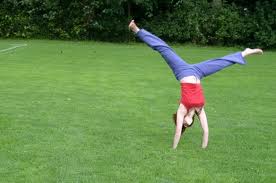 This aired on Maine Public Radio, March, 1998
This aired on Maine Public Radio, March, 1998
Usually, when I am reminded of some earlier version of myself it is with deep embarrassment. A sudden rush of insight twenty years too late. A teasing reminder from an old friend. The memory of a teenage crush. All cause me to twinge, as I recollect my own spirited, frightened, proud and wounded adolescence.
But there are occasions when these glimpses are laced with love, a tender nostalgia for the irretrievable self poised at the edge of a new world, made even more precious perhaps by the very clumsiness of it.
I thought of this recently as I dined with a friend and her teenage daughter, Amy. They were sparring over weekend plans: Amy pressing to go to a party on Saturday night and her mother hotly reminding her that she was grounded for a past curfew infraction. They argued back an forth, each intractable, until Amy screeched her chair back from the table and bolted, cursing her mother under her breath.
In the stung silence that followed I was surprised by my thoughts. They weren’t of my friend, who in her embarrassment and anger brittly cleared the dishes. I thought of Amy. Of the tides of her spirit. Of the absolute aloneness of a teenager’s struggle for possession of a suddenly complex universe. I thought of her experimentation with her power over the boys, and the intoxicating pull of hanging out with her friends.
And I thought of myself at fifteen, sneaking out of my room at night to dance with my friends, my blood moving hip-hop fast. That thing that was laced so long in corrective shoes, that was dulled by algebra tests, muted in piano lessons, broke out. My spirit exploded, uncontainable, reborn. And it didn’t take no for an answer. I tested the limits of my power and I flirted like crazy. And, like Amy, I detested my mother.
But it wasn’t just my mother’s controls that angered me. It was the hidden messages. I felt her disapproval of my emerging self, a mistrust of my judgments, my flirtations and desires. One look from her told me I was dangerous, a body dangerous, a body whose movements were shameful.
Looking back, I can see my mother’s attitudes were based on fear. For my safety and happiness in a world that does not honor the female spirit and body. A world where girls are encouraged to attract boys but judged wild and slutty if they are successful.
But those are insights my mother didn’t share with me. She didn’t have the words or the clarity or the courage it takes to defy cultural assumptions. Our struggle was will against will. And what I took from it was a sense that I was somehow responsible for creating the tangle, that my feminine awakening was a dangerous occurrence, that my desires were not to be trusted and that women must follow different rules than men. The message was: If only you’d be different than you are there would be no trouble.
As I left my friend’s house I sat in my car and watched as Amy bedazzled a neighborhood boy. She spun slow, lanky cartwheels down the street. Her hair dangled like willow boughs and her expression was at once mischievous and nonchalant. I marveled at how beautiful and ardent and transparent she was as she practiced her powers of coquetry, thrilled by the sidelong glances of her companion. Given affirmation like she hasn’t known since her infancy. Once more, a charmer.
But I know Amy will pay a price for her flirtations. Girlfriends will turn from her in envy or embarrassment caught themselves between loyalties to each other and the pursuit of the prized boys. Parents and teachers will call her at the very least a “handful.” The flirtations themselves will turn on her – riddled with private defeats, the humiliations when her spell-weaving doesn’t succeed, or when she glimpses at her own manipulations with sudden self-contempt.
And the boys will mistake her. They will underestimate how easily she is hurt. They will fashion their idea of her around their own desire, oblivious to the spirit in her spinning limbs that asks, “Am I good, am I good, am I good?”
Because sexual awakening is timed with her entry into the adult world, it will be nested with many wounds and mistaken assumptions. And because her flirtations give her a momentary and passionate sense of her power, she will think it is her very power that caused her pain. In some deep way she will fall away from herself, afraid of that power.
I didn’t have an answer for my friend when she threw her hands in the air and asked, “What can I do with her?” But now I think there are a few things I might have said.
I should have helped her look past Amy’s behavior, to remember the profundity of her struggle. To help her daughter feel pride in her miraculous body, capable of giving life to another human being. To counsel her in the use of her power, teaching her not to give it all away to the boys and beginning to know it as the seat of her creative self.
The human experience is one of remembering and forgetting, finding, losing, of the self resurrected and then slowly, invisibly lost. Knowing this, we all must celebrate Amy’s awakening, which is an act of greatest courage and grace. And we must forgive her as she twirls away.